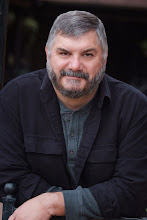Journal: June 16, 2008
FIRST DAY OF THE INSTITUTE.
We took care of a lot of housekeeping business in this morning. Arranging for computer access, etc. (Lots of technical problems.) We also receive a ton of resources in the form of handouts and books. The scope of the institute is massive and I am not sure that I will be able to get a handle on it – or know that I need to but rather find a focus.
The afternoon session focused approaches and preparation to teaching Genocide in various curriculums. One key area of discussion was Rationales:
• Why am I teaching about genocide?
• What am I teaching about this particular genocide/human rights violation?
• What are the most essential issues and questions that need to be addressed? Why?
• Decide on coverage, depth, or combination of the two
I see this as an approach to Voices and a possible way to focus the scope.
One key quote shared that I liked came from Ben Whitaker:
“The mobilization of public awareness and vigilance is essential to guard against any recurrence of genocide and other crimes against humanity and human rights.”
Another area of discussion that resonated with me as well was the idea of problematizing the topic. I tend to think in very black and white tones and need to truly explore the depth of the issues – the many sides
Good Lessons problematize genocide, their precursors, and the aftermath.
Avoid over-simplifying a particular instance of genocide.
• What was life like before the genocide
• What historical issues, events, or ideas led to the genocide
• How was the genocide stopped
• What happened after the genocide
By complicating the analysis of genocide, students are allowed to consider challenging points of view and make personal connection to the materials.
The highlight of the day was dinner and discussion with Ambassador David Scheffer who served under Bill Clinton and represented U.S. interests in the development of the International Criminal Court.
I am boggled by the complexities of politics and genocide, or to use Scheffer’s terms Atrocity Crimes. His presentation was a wonderful overview of the ICC’s development and the global negotiation required to develop it. He was passionate about the court and you could tell that much of his response was personal given the Bush Administrations destruction of much of the work he oversaw.
While a complex subject, he made a compelling argument that the U.S. needs to be a part of this court for two reasons – First we have a responsibility as a global leader to be part of the decision making / negotiating process going into the development and implementation of this judicial body, especially if we wish to keep that leadership position. Second, and for me this is an important point, we, as a nation, have a moral responsibility to be a proactive player in this court. If we wish to be the bastion of liberty and justice we cannot sit in judgment on the sidelines. American exceptionalism is a false doctrine that borders on global manifest destiny. It is an act of hubris that will lead to this nation’s downfall – and give the decline of the international reputation and power of the United States over the past 8 years – we need to change this philosophical and egotistical outlook as a matter of national and international security. To be a member of the global community, we cannot stand above or outside the circle of responsibility. To truly uphold the potential of freedom we must insists on global justice and participate. We cannot have peace at the expense of justice.
Additionally, participation does not jeopardize national interests, sovereignty, or autonomy but rather allows us to pursue those interests alongside our global interests with a true commitment to global justice.
Tomorrow we move into deeper content. Tonight’s political conversation puts a significant frame around those upcoming discussions.
Subscribe to:
Post Comments (Atom)

No comments:
Post a Comment